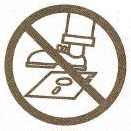|
Paramemetic posted:Part of it is also that the general Buddhist disavowal of nihilism predates modern nihilism and I may have been stretching its application too far. Generally Buddhism is a refutation of nihilism and essentialism as claims that things either don't exist or that they do exist. I personally find a lot of parallels between Buddhist thinking and existentialism, but because of the significant differences in Eastern thought from Western, and the big load of baggage that comes with a comparison to a hashed out modern philosophy, I think it's best to avoid such comparisons. Also, thanks for the koans, they're very interesting to read. Can't say I really get most of them, though. v Prickly Pete posted:I wasn't able to find the specific sutta I was looking for. The Ananda Sutta has an account of the Buddha talking with Vacchagotta, who I think is referred to as an annihilationist in the commentaries somewhere. He usually serves as a figure who tries to pin the Buddha down on his stance toward what are referred to as "speculative views". Cardiovorax fucked around with this message at 13:31 on Sep 16, 2013 |
|
|
|

|
| # ? May 15, 2024 15:41 |
|
The thing to be cautious of with the concept of emptiness, with the concept of nothingness, with nihilism, in relation to Buddhism, is that it is a very strong trap that is itself a quagmire of delusion. But it is a trap that is very difficult to emerge from. When someone believes everything is real, that it exists in an absolute way, it is fairly trivial to demonstrate that such is not the case if their mind is receptive to this. It is easy enough to show that a wooden chair was once not a chair at all, and will someday not be a chair at all, and so that its "chair-nature" is impermanent, interdependently arising, and not essential. It is far more difficult once someone has decided that nothing exists or is real in an absolute sense to convince them that things are real. The actual point in Buddhist practice is not that nothing exists really, or that nothing matters because of emptiness. That's a trap, but an easy one to fall into. It's easy to fall into the trap of "oh, everything is empty, so all actions are empty, so I can do whatever or not do whatever and it is empty and no problem." Make no mistake, if you set a torch to your house it will burn down. Buddhism does not deny this. It does deny that the house existed absolutely, so it does deny that anything of essence was lost. It also recognizes that the fire was predicated by a cause, and so it would deny that the fire existed essentially, that the fire was necessary. And so in this case a Buddhist might say "ah, the house burned down, but no house burned, and fire was not real" and this would be true! Nothing primordially "house" burned, the fire, being interdependent upon the fuel, could not have been real, because fire only exists where the necessary causes of fuel, oxygen, heat, and a sustained chemical reaction happen. But to take that to the next step and go "oh, nothing is real because emptiness" is a pit that one falls into easily but from which one does not easily climb. Buddhism's emphasis on the middle way is not about denying the existence of things that happen. They exist in a very conventional sense. They do not exist in an absolute sense, and this is the crux of the matter. There is no absolute reality. There is certainly conventional reality. Therefore, the escape from the inconvenience of getting dressed and eating is to get dressed and eat. After that's done, there is no inconvenience. The escape from suffering does not free one from the material things they must do. A fully enlightened being still has to eat or their body will die. They still have to drink. They still must wear clothes or face the social consequences. But they do not suffer for these things. A fully enlightened being might still be robbed, or beaten, or take ill, or be eaten by a lion, but they don't suffer for it. If you cut the finger of a Tathagatha, it will still hurt, but there will be no suffering. They are free from the actual cause of suffering, which is not the event itself. Dying is not suffering, it is just a process. We suffer when we die because we are clinging to life. Being sick is not suffering, it is just a process. We suffer when we are sick because we are clinging to good, healthy feeling. Growing old is not suffering, it is just a process. We suffer from it because we cling to the capability of our youth. This is why I said Buddhism is not nihilism, but realism. Buddhism looks at things how they really are, rather than how they are presented or fabricated mentally. Mentally if I am hit by a car and my leg falls off, this sucks! How terrible! All my hopes and dreams are dashed, my desires and wants crushed, all my potential dashed before my eyes. In reality? It's just a leg that has fallen off a body. This happens to other animals all the time. It happens to other people, living and dead. It is just a thing that happens. Yes of course my capabilities for the future are limited, but they were never real to begin with because obviously the causes and conditions necessary to bring them about were not there. So it's realism, not nihilism. 
|
|
|
|
I've started focusing on my breath in bed to help me get to sleep. But it's occurred to me this might be a bad idea. I'm prone to getting sleepy while meditating as it is, and this probably makes me associate meditation with sleep even more. Does anyone have an opinion on this?
Tea Bone fucked around with this message at 14:32 on Sep 23, 2013 |
|
|
|
It's a wonderful time to be carried in breath. Every Buddhist tradition I've looked into specifically has encouragements about minding the breath in the final hours/minutes/moments of wakefulness each evening. Out of curiosity, have you noticed any increase in dreaming or dreams recalled?
|
|
|
|
The-Mole posted:It's a wonderful time to be carried in breath. Every Buddhist tradition I've looked into specifically has encouragements about minding the breath in the final hours/minutes/moments of wakefulness each evening. Now you mention it, yes. However I can go ages without dreaming or being able to recall dreams, then I'll go through phases where I dream a lot. Since minding my breath in bed I have been going through one of those phases, but it's probably too early to tell if that's because of the meditation.
|
|
|
|
How many dreams you remember is directly correlated with how deeply you sleep. You always dream, but you only remember a dream when your sleep is interrupted during the REM phase, because long-term memories don't form during that sleep phase. If you really want to remember a lot of dreams, take Ambien for a week and then stop. You'll feel like rear end the next morning, but goddamn that's a lot of dreams. 
|
|
|
|
Cardiovorax posted:How many dreams you remember is directly correlated with how deeply you sleep. You always dream, but you only remember a dream when your sleep is interrupted during the REM phase, because long-term memories don't form during that sleep phase. If you really want to remember a lot of dreams, take Ambien for a week and then stop. You'll feel like rear end the next morning, but goddamn that's a lot of dreams. Actually, to be honest I dislike dreaming haha, I find the good dreams leave me with a sense of longing in the morning and who wants to have bad dreams?
|
|
|
|
I have a few questions; like what is the general opinion and general thoughts on the Atlanta Soto Zen Center, Kalpa Bhadra Kadampa and the Silent Thunder Order. What is the Thich Nhat Hanh tradition, and the Karma Kagyu School As for the rest my central questions are "Where should I start." around me I have a Soto Zen place (Southwind Sangha(which is affiliated with the ASZC), and several places calling themselves "Vietnamese Buddhist" "Laotian Buddhist", "Cambodian Buddhist" is it inappropriate for a caucasian to go to these places or are these more like the general feel of how Buddhism is practiced in those particular regions. Its just a lot of variations in places I can go to that I am just boggled by the sheer number of options. There is a Thai Theravada place, but the same question arises as earlier. I understand a lot of the basics but I want to see first off how this practice will work with me, if I feel I can get into it, from the stuff I have read, including some of the sutras and part of the Dhammapada, but I really do not know enough about all the variations to find one that really suits what I want to learn at.
|
|
|
|
I have the option to receive the Five Mindfulness Trainings (basically the Five Precepts) formally this weekend and I'm not sure if I should do it. Has anyone done anything like this? I want to receive them eventually, but I'm not sure about right now.
|
|
|
|
Shnooks posted:I have the option to receive the Five Mindfulness Trainings (basically the Five Precepts) formally this weekend and I'm not sure if I should do it. I'm not familiar with the practice of "receiving" them, but they are often taken by lay practitioners on a somewhat regular basis. Normally in the Theravada tradition, the precepts are taken at the beginning of a meditation session of Dhamma talk or a retreat as part of the opening chanting that is often done. This is usually done after taking refuge in the Buddha, Dhamma and Sangha. They don't need to be administered or granted as some kind of sacrament or rite or initiation that is done by a monk or a Dhamma teacher, although some centers or traditions may do it this way. I don't think that is a bad thing, just different than what I have seen. Either way, they are helpful to reflect on, which is why they form a core part of the chanting that is done at many lay buddhist centers and monasteries. If you intent to start practicing in a serious way, taking refuge and taking the precepts is a good way to help center your practice, in my opinion.
|
|
|
|
They usually do them during retreats or special dharma talks, but this is a special occasion locally where a bunch of dharma teachers are getting together for a Buddhist wedding and will be reciting them. I've bee practicing for about a year now and my "youth group" was given the option of receiving them if we'd like to. My tradition doesn't have a ceremony in taking refuge for lay people, but I've personally taken refuge. I guess I was hoping to do it up at the monastery some time soon versus in some person's house in Boston. Being at the monastery is such a spiritual experience for me. But I do have a weak spot for chanting
|
|
|
|
Shnooks posted:I guess I was hoping to do it up at the monastery some time soon versus in some person's house in Boston. Being at the monastery is such a spiritual experience for me. Totally understandable. I really enjoy chanting also. It puts me in a good space for meditation.
|
|
|
|
Shnooks posted:I have the option to receive the Five Mindfulness Trainings (basically the Five Precepts) formally this weekend and I'm not sure if I should do it. I'd do it up, but it's based on whether you want them or not. To me, I take most practices if my schedule lines up and it's a practice I feel I should take sooner or later regardless, because to me that's a kind of signal that maybe that time and place is when I should take it. After all, if you're going to take it eventually, then why not take it sooner than later? You might die any moment, and have to wait lifetimes to have the opportunity. If you're taking it eventually anyways, then you have already committed to taking them. If it were some tantric practice, or some deity yoga, or something like this, I'd say maybe to hold off until a teacher instructs you to take them or something like this, but something so basic as refuge and precepts is a thing we should take numberless times. If you're not ready to really understand it now, it will plant a seed. Edit: I just read up above where you said you would perhaps rather take the teachings at the monastery, so I guess there the question is why not do both? If it's just a teaching/training, and not an empowerment or something that you have to commit with, then do it both times and places. If it is something that forms a vow with a teacher or something, then do it with the teacher you want, regardless of the location. But yeah, if it would be more meaningful at the monastery that is definitely a consideration.
|
|
|
|
This may sound really, really odd, so I want to preface this with a bit of an apology -- I'm not trying to start anything, but am just curious. For Buddhism; why would one want to become enlightened? A bit of context, I was talking to a friend who has more knowledge about Buddhism than me, and he said Enlightenment was a sort of becoming one-with-everything type deal. Honestly that's a bit terrifying to me.
|
|
|
|
TalonDemonKing posted:This may sound really, really odd, so I want to preface this with a bit of an apology -- I'm not trying to start anything, but am just curious. From what I understand, becoming enlightened means seeing things as they really are. It means awakening. It doesn't mean you become one-with-everything. I can't tell you exactly what its like because I'm not enlightened, but from what I've read and learned it means that you don't just understand impermanence, Depending Origination, anatta, and sunyata intellectually, but rather you actually experience them first-hand. I've actually had brief flashes where I felt like "whoa, everything's connected and I'm a whirlpool in an infinite river", but I don't know if that's what enlightenment is like or if I just had a brain fart. But achieving enlightenment is desirable because it goes a long, long way to overcoming suffering. You experience a lessening of egocentric feelings and see the "big picture" of life, and so your problems bother you way less. But again, I haven't done this myself so maybe I'm talking out of my rear end.
|
|
|
|
TalonDemonKing posted:This may sound really, really odd, so I want to preface this with a bit of an apology -- I'm not trying to start anything, but am just curious. Well, with regard to the one-with-everything deal, you already are. There's no becoming necessary. You are interdependent with everything else and possess no nature that is not interdependently arisen. That aside, however, we pursue enlightenment not for enlightenment itself but in pursuit of the same goal the Buddha was striving for when he became enlightened: the cessation of suffering. Enlightenment itself is not a reasonable goal without a motivation. That motivation for many is cessation of their own suffering, for some it's the cessation of suffering for others. Regardless, though, the only way that practice and pursuit of enlightenment becomes reasonable is within the context of suffering and our goal to achieve an escape from the unsatisfactoriness of samsara.
|
|
|
|
Here's what Dalai Lama has to say about the whole one-with-everything concept: https://www.youtube.com/watch?v=xlIrI80og8c
|
|
|
|
Hi again, thread. I posted in the previous incarnation of this thread for the first time ovee two years ago after experiencing a burnout and constant anxiety. Things have gotten better, but anxiety has liked to return from time to time. Yesterday it returned with a blast when my girlfriend said she likes to spend some time by herself and doesn't want close contact right now. This is nothing strange, since we've been together for five years, but anxiety kept me awake the whole night. I went to work in the morning only to return instantly, cause I couldn't bear being there. I also haven't managed to sleep. Apparently I'm pretty codependent. That thing made me anxious because of my alcoholic mother who ruined my childhood. Today I spoke with my friend who us also codependent and suffered from an alcoholic parent. He said his anxiety is a mixture of anxiety and aggression. I noted mine was a mixture of anxiety and fear. Later it hit me. My anxiety _is_ fear, or at least it's one of the ugly fruits that sprouts from the root that is fear. As a 5-year-old I learned to fear for my mother as she disappeared for weeks without warning and fear her as she exploded in rage. Now I recognize that I react to nearly all things by being afraid of them. When I used to fear anxiety, it was actually fear I was fearing. Now that I see the thing as it is, what next? How should one meditate to let go of fear? My anxiety disappeared when I made the realization, but now it has returned. Though I feel more scared than anxious. Right now I'm on a bus going to my aunt for a weekend and I'm scared if I can manage the last 20 minutes of the trip without a panic attack or something.
|
|
|
|
Are there any sutta references for this idea that "everything is connected" or "we are all one"? I don't recall the Buddha ever stating this idea in the Pali Canon. I haven't read every sutta by any means, I just havent seen this view explicitly stated before, so I am just curious as to why it seems to come up so often during discussion of the Dhamma. As far as a view, specifically, it reminds me of something that would be brushed aside as a thicket of views, something that isn't necessarily relevant or important to the path. I can see how people would come to this conclusion after considering the idea of non-self, as there is no real ultimate distinction between selves. But this seems to just as easily lead toward the idea that "nothing is connected", rather than everything being connected. Is this idea of interconnectedness present in Mahayana Sutras? People Stew fucked around with this message at 19:51 on Sep 26, 2013 |
|
|
|
To preface this post, I want to say that I apologize if I seem like some rear end in a top hat Internet athiest or something. I have the utmost respect for the beliefs of everyone in this thread and wouldn't bother posting otherwise. Some of the elements of Buddhism are very appealing and wholly believable to me, but others seem essentially magical and I'm just trying to see if I can come to terms with them. I just hope I don't come off like someone wandering into the Christianity thread and posting "oh yeah, well Jesus doesn't exist, checkmate Rhymenoceros posted:Here's my take on it, maybe it will be helpful. I suppose my issue is that I'm not willing simply to take the Buddha's word for it. I don't have an electron microscope to look at water molecules with, but I can see plainly that water becomes ice when I freeze it. I can't freeze an unwholesome action, so how do I know that karma functions as described? I can accept that some things may just be fundamental properties of the universe, but if such properties have no effect that I can observe directly, then how do I know they are real? I don't think feeling guilty after doing something unwholesome really qualifies as evidence. I have the same issue with the concept of rebirth, although it's also compounded by confusion on how rebirth is supposed to work. The lecture posted earlier in the thread asserted that when someone dies, their final thought somehow leads directly to the first thought of some other being, and I don't understand how that could possibly be. I would define my thoughts as a particular arrangement of chemicals in my head, so how can they affect the chemicals in some other head somewhere else? Furthermore, if a person has no immutable nature, like a soul or whatever, what exactly is being reborn? To borrow a quote from Paramemetic: Paramemetic posted:You might die any moment, and have to wait lifetimes to have the opportunity. I think it's statements like this that cause confusion between rebirth and reincarnation. In this scenario, what is doing the waiting? Not me I think, because I ceased to be when I died, since I am only a particular arrangement of stuff that has now been disrupted. Some other being will be getting that opportunity, surely? I understand the idea that all things are connected by causation, but then why should some particular being be considered my next life? How am I any more connected with that new life than I am to any number of other beings? Prickly Pete posted:From the point of view of a Buddhist (one who believes in rebirth anyway) ... Pardon my pulling this out of its context, but does this wording imply that it's possible to be a Buddhist while not believing in rebirth? How would that work? Isn't rebirth critical to the concept of samsara? mcustic posted:Here's what Dalai Lama has to say about the whole one-with-everything concept: I've always loved this joke, but I have no idea why he thought that pun would make any sense across a language barrier.
|
|
|
|
Third Murderer posted:
There are people who identify as Buddhist without believing in rebirth. I think the path can still be beneficial to you if you don't believe in rebirth. I also think it is also perfectly reasonable to start down the path and withhold judgement on the issue. There are plenty of ways to benefit from meditation and the moral aspects of the eightfold path without concerning yourself with the ideas of rebirth and kamma. I think the problem starts to develop when people attempt to twist or interpret the Dhamma in such as a way as to justify their lack of belief in rebirth. You'll see people start to make statements like "The Buddha didn't actually teach rebirth" or things like that, which are completely untrue. If you have an issue with the concept of rebirth (and if so, you'll find yourself in good company), don't let it keep you from starting your practice. You may find that the idea becomes less problematic as your progress continues, and you may find yourself coming out of a meditation session in a few years and finally starting to understand how it can actually make perfect sense. A few good reads on the topic that approach this idea from different perspectives: Dhamma without Rebirth The Truth of Rebirth And Why it Matters for Buddhist Practice People Stew fucked around with this message at 20:01 on Sep 26, 2013 |
|
|
|
Fear is something every human can understand and relate to. It is one of the natural ways our body has of keeping us out of danger. It's very effective, to a point, though when it gets out of proportion, it can become disabling or disruptive. It can be worthwhile to try to understand specifically what we're afraid of. This is not always the same thing as what circumstances bring about the emotional experience of fear. Just taking the time to get to know our fears and our reactions to our different fears seems to help reduce our reactivity to fears. Voicing them aloud (with people you trust/are close to) helps in a variety of ways and seems to make it a little easier to figure out which fears we really shouldn't ignore and which fears we could safely stand up to a little bit more. Everyone experiences these things in their own way, of course. Fear works like a messenger from our brain telling us that there might be something to watch out for. Often the experience of being overwhelmed in fear comes when we don't know what exactly we are scared of, nor what would help. Simply appreciating fears when they turn up and trying to scrutinize them with a little more distance and a little less reactivity can help a lot in understanding how we should respond. Appreciating fear (and even thanking our brains for pointing out what to watch out for) no doubt sounds like a strange suggestion, but fighting fear and trying to suppress fear just seem to give still more power to fear. Basically, listen to fear, appreciate it, do what you can to address it meaningfully, talk about it. Then once you can't think of anything else to do, make bad jokes about it. As a small tip, if you have any mild phobias, learning to deal with those is good practice that often seems to shed a lot of light on how all the mechanisms of fear work within us. Learning about the things we are afraid of will usually teach us how to deal with them, especially if we talk to others who have dealt with them before.
|
|
|
|
I found it very helpful to "set aside" the topics of karma and rebirth when I first started looking at Buddhism. Our teacher didn't push the topics too much as he definitely sensed my resistance to them. Leaving them as open topics helped though and I'd suggest you do the same. It isn't totally essential to be at peace with the concepts of karma and rebirth before you start practicing meditation or reading books and really those things will be what leads you to some semblance of answers for yourself anyway. It isn't a coincidence that Chögyam Trüngpa (and the Buddha for that matter) didn't push these concepts as part of the introductory, primary teachings. The main thing to consider when getting started is the Four Noble Truths and starting a real meditation practice. The rest will come. Or it won't. Best to not worry about it.
|
|
|
|
Prickly Pete posted:Are there any sutta references for this idea that "everything is connected" or "we are all one"? I don't recall the Buddha ever stating this idea in the Pali Canon. I haven't read every sutta by any means, I just havent seen this view explicitly stated before, so I am just curious as to why it seems to come up so often during discussion of the Dhamma. As far as a view, specifically, it reminds me of something that would be brushed aside as a thicket of views, something that isn't necessarily relevant or important to the path. The interconnectedness is a result of interdependent origination and emptiness as concepts. Everything is devoid of intrinsic nature, everything arises in relation to everything else. The concept of "I" is irrelevant because it is a matter of viewpoint, and the viewpoint is not intrinsic. Thus when I say "I" I conventionally refer to myself, but there is nothing "myself" to be distinct from, say, you. So it is possible to think "I" and mean "all sentient beings." There is nothing but an arbitrary distinction, no true disconnect aside from mental appellation, which is illusory. I do not know if there is a foundation for this in the Dhammapada. It is deeply expounded upon in the works of Nagarjuna and in the teachings of all paths following from Nagarjuna's tradition. Third Murderer posted:I think it's statements like this that cause confusion between rebirth and reincarnation. In this scenario, what is doing the waiting? Not me I think, because I ceased to be when I died, since I am only a particular arrangement of stuff that has now been disrupted. Some other being will be getting that opportunity, surely? I understand the idea that all things are connected by causation, but then why should some particular being be considered my next life? How am I any more connected with that new life than I am to any number of other beings? This is an example of conventional language being problematic. It is true that if Shnooks dies and doesn't receive the teaching, no Shnooks will receive the teaching. It's also true that there is nothing intrinsically Shnooks to receive the teaching in the future - but then, there's no Shnooks to receive the teaching in the present! The teaching will be given and received and Shnooks is an irrelevancy. A particular being is not considered "your" next life in an absolute sense, but rather a being is born resultant from the causes you create. In a Vajrayana sort of way, one might consider that a being can be an emanation of the same mindstream, the same primordial root of consciousness. There is discussion in texts from the Drikung Kagyu and I assume other Kagyu traditions discussing the "unceasing flow of consciousness that is primordial awareness." That is, your thoughts are being thought now, they have never not been present since you were born, they will never stop being present, even after you die, they will simply change vantage point. The conscious awareness in this case is merely dependently originating, but it is unceasing, always changing but never starting or stopping. I cannot expound properly on this concept because I myself taint it by applying Western esoteric concepts that are similar but perhaps imprecise regarding a sort of precedence of consciousness-emanation stuff, but it's no matter. The end result is that there is a flow of conscious thought that does not start or stop, and that even when we die, this flow of conscious thought will continue, but from a new vantage point. Just as our present thoughts of "I" and "you" are distinct only because of the vantage point of the consciousness, and ultimately are illusory ego-constructions meant to maintain that separation, so too will be future "births" of that consciousness stream merely distinct by vantage-point. Mind is not separate, but like a stream that splits apart and then rejoins, it becomes distinct and then indistinct based on conceptual thought. So yes, it is imprecise for me to say Shnooks might receive a teaching in a future life as that future life will not be identical to Shnooks, it will not be the same Shnooks. It might be a male monk, it might be a princess, it might be a politician, whatever. It might be in 500 years after countless cycles as a moth or a fish or whatever. It might be in the next kalpa after this world has burned away, or on another planet, or whatever. Clearly Shnooks is not those things and will not directly become those things. But through cause and effect Shnooks actions will bring about other beings, and on and on. So yes it's imprecise language but the language becomes tedious. I'd also like to point out that the thing about consciousness flow is not core, fundamental Buddhism in the sense of being Theravadan or something the Buddha taught. It's inextricable from the teachings of Vajrayana Buddhism, but not something you have to accept. And regardless, it's definitely fine detail which is unimportant to the noble eightfold path. Rebirth itself is a contentious point. WAFFLEHOUND for example strongly advocates that someone must accept literal rebirth to even enter the Buddhist sphere. I reject this notion, and hold that someone who practiced every precept, and who followed the eightfold path, and who did all these thing is as surely a Buddhist as someone who holds one precept and is a refuge-holder also believes in rebirth. I strongly believe that anyone should take whatever they want from Buddhism and leave what they can't handle at this point. One particular feature of Buddhism is that everything follows logically from everything else. It's a very internally consistent belief system. So eventually if you accept one premise, you will likely come to similar conclusions on your own. If not, that's okay too.
|
|
|
|
Paramemetic posted:The interconnectedness is a result of interdependent origination and emptiness as concepts. Everything is devoid of intrinsic nature, everything arises in relation to everything else. The concept of "I" is irrelevant because it is a matter of viewpoint, and the viewpoint is not intrinsic. Thus when I say "I" I conventionally refer to myself, but there is nothing "myself" to be distinct from, say, you. So it is possible to think "I" and mean "all sentient beings." There is nothing but an arbitrary distinction, no true disconnect aside from mental appellation, which is illusory. That all makes sense to me. I guess I always wondered at the concept because I see it stated so often and so emphatically, but never with any kind of sutta references. On the topic of Nagarjuna, I was actually thinking about writing a post for this thread regarding the role of sunyata/suññatā in Theravada. I haven't read anything by Nagarjuna but I'm interested in doing so if you have any recommendations for particular translations of his work. I realize his ideas are immensely important and the concept of emptiness in Buddhist thought is fascinating to me, especially as I see it having more emphasis than normal for Theravada in some of the writings and talks from the monks and teachers in the Thai Forest Tradition. So anything you can suggest in that area would be appreciated.
|
|
|
|
Prickly Pete posted:That all makes sense to me. I guess I always wondered at the concept because I see it stated so often and so emphatically, but never with any kind of sutta references. This translation is solid inasmuch as any translation can be. As with the Suttas, it can be tedious to read, with all the logical points set up meticulously and in that sort of longhand way. It is the fundamental work of the whole Madhyamaka school, however, so it's worth a read. It is also the work wherein Nagarjuna meticulously refutes dualism and dismantles binary systems. It's a solid read but it's dense. Letter to a Friend is also a very important work of his, but focuses more on the ethical and practical side of Buddhist practice than on the philosophical bits. Edit: I have also quoted a few times from The Way of the Bodhisattva by Shantideva, and there are a few chapters in this book ("Wisdom Awareness" being the main) that focus on this same philosophical issue. Shantideva delivered this entire book at Nalanda University, which Nagarjuna had headed, and it is steeped in that same doctrine. Paramemetic fucked around with this message at 21:26 on Sep 26, 2013 |
|
|
Third Murderer posted:Pardon my pulling this out of its context, but does this wording imply that it's possible to be a Buddhist while not believing in rebirth? How would that work? Isn't rebirth critical to the concept of samsara? Some people like to pretend that historical Buddhism didn't exist and that Buddhism is just a philosophy, but yeah, it's pretty hard to take refuge in the Buddha and think he was full of poo poo in the same breath, so it's pretty central, and always has been until modern time when Atheists wanted a title to identify with for some reason and decided to co-opt the name of a major world religion for some reason. That said: Prickly Pete posted:There are people who identify as Buddhist without believing in rebirth. I think the path can still be beneficial to you if you don't believe in rebirth. The path can absolutely beneficial, it's just that it's not the same path as Buddhism if you're throwing out the purpose for Buddhism. It's certainly a noble thing and everyone can benefit from Buddhist practice, but it's kind of like claiming that despite thinking God is imaginary and Christ was just a dude with some good ideas that you try to be Christ-like and are therefore Christian. It doesn't really work too well. Prickly Pete posted:I also think it is also perfectly reasonable to start down the path and withhold judgement on the issue. There are plenty of ways to benefit from meditation and the moral aspects of the eightfold path without concerning yourself with the ideas of rebirth and kamma. This is really important. Nobody expects you to believe everything the Buddha taught right away, and this is especially true considering many ideas are difficult for people from different cultural backgrounds where rebirth or the cosmology isn't a common thing. Many people confuse starting their trip down the path with becoming Buddhist, which are two different things. Becoming Buddhist means taking Refuge in the Buddha, the Dharma, and the Sangha, and that in large part means thinking that Buddha wasn't just flat out wrong on some of the core fundamental ideas of the religion. This is why a lot of sanghas have a huge probationary period before people are even allowed to take refuge. Becoming a Buddhist is accepting a pool of beliefs about the nature of the world, not just enjoying meditating and wanting to reduce suffering, Being a good person, however, does include wanting to reduce suffering. 
|
|
|
|
|
I picked up a definition of karma (from this thread I think) that it amounts to "If you do good things then there are more good things in the world", and this concept brings me a lot of joy, as I love to do things simply for the sake of the doing and this simple statement so eloquently describes that. Edit: I had a question but decided this was not the place to ask it.
|
|
|
|
The-Mole posted:Fear is something every human can understand and relate to. It is one of the natural ways our body has of keeping us out of danger. It's very effective, to a point, though when it gets out of proportion, it can become disabling or disruptive. I think I experienced too much fear as a child and thus accustomed to it. At least now that I've recognized it I can change my attitude and way of thinking. I understand it's usually pretty basic things which keep the mind their prisoner. Anger and all sorts of hedonistic feelings such as lust come to mind. But fear is mentioned much less, so it didn't cross my mind that fear might be my hindrance. It feels like there are many quotes floating around attributed to the Buddha according to which it is important to defeat anger in order to achieve inner peace, but there are less about defeating fear for the same purpose. Surely the Buddha must have adressed that as well?
|
|
|
Perpetual Hiatus posted:I picked up a definition of karma (from this thread I think) that it amounts to "If you do good things then there are more good things in the world", and this concept brings me a lot of joy, as I love to do things simply for the sake of the doing and this simple statement so eloquently describes that. Ehhh... I mean in a broad sense this is workable for the English usage of Karma but not for the Buddhist useasge. I'd really love quantumfate to chime in on this one, dude is like a master at explaining karma.
|
|
|
|
|
WAFFLEHOUND posted:Ehhh... I mean in a broad sense this is workable for the English usage of Karma but not for the Buddhist useasge. I'd really love quantumfate to chime in on this one, dude is like a master at explaining karma. I think it was me who said it, and it's not only workable for the English usage. It's absolutely workable for the correct usage. The effect of good deeds is to increase net good. The effect of bad deeds is to increase net bad. It's not a completely in depth definition, and it's not meant to be a definition, but rather a way to think about karma without placing moral judgment. To the mind of people who grew in the West, it's sometimes difficult to conceive of this idea that cause and effect just happen. Without a moral arbiter, we're quick to use our rational brain to go "well I should do nonvirtues if I can get away with them" or "if I won't be punished for this then why shouldn't I do it?" It's easy to demonstrate why we should refrain from certain acts. For example, we can easily see why we shouldn't kill or steal. But it's more difficult, without some kind of promise of reward, to justify why we should do good deeds. Sure, "because it accumulates merit" is a functional answer to that question, and yes, accumulating merit through cause and effect does lead to tangible and intangible benefits. But in practical terms, the most straightforward reason people should do good deeds, altruistically and without direct benefit, is because doing good increases net good. If I am nice to a person, then even if they blow me off and motherfuck me and go on their way just as grouchy, the net good deeds in the world has gone up. So, I used that quote almost exactly to justify why we should behave altruistically and compassionately despite no promise of reward and despite no punishment for failure. It's not complete, but it's practical. I also disagree that it's an accurate description of Western conceptions of Karma, which are basically "if you do good good things will happen to you." In fact, it's meant to deliberately sidestep that. Saying "do good so good things happen to you" is exactly that reward, exactly that carrot which I am saying does not exist. You may never see a reward in this lifetime for your virtuous actions, but you should do them anyways because it makes things a nicer place overall. I could get into the whole "and you lack intrinsic identity so you're actually being nice to yourself and perhaps in a future life by having increased net good you'll be more likely to have good experiences as a new being" but we don't even need all that. Karma is cause and effect. A poplar seed always grows into a poplar tree, a sumac seed always becomes a sumac, but to look at either of them after a few weeks and you'd never know they become such big trees! So a good cause always becomes a good effect, even if it's not immediately obvious. I also use that line generally in conjunction with the law of jerks for mediating arguments where I can't just get straight up Buddhist. The law of jerks is that if someone is a jerk to you, and you become a jerk back, all you've done is created two jerks. Nobody likes jerks, and two jerks is worse than one jerk, so don't be a jerk back. I never spout nonsense about how if you just are nice back to the jerk they'll stop being a jerk. That's not realistic and just ends up with people being bitter about the whole thing. But if you have one jerk, and then add another jerk, now we're almost to a jerk crowd and that's no good. Do I claim this to be a perfect and ideal Buddhist teaching straight from the sutras? No, of course not. But it's pretty useful, and it's ultimately Buddhist thinking. So yeah, doing good deeds increases net good deeds. This is because of karma, this is an effect of karma. Because karma is basically cause and effect, it's infinitely scaleable, as with all Buddhist truths. It is true in both the cosmic scale of rebirths and such, but it's also true just in the practical level of real life. If I take an fruit and I drop it on the ground from a height because of carelessness, or malice, or anger, or scientific curiosity, I have a bruised orange. That's karma. Edit tldr: What that is, "doing good deeds increases net good deeds in the world" is a very practical, relatable form of karma. It lacks depth of philosophy and so on so on, but it's not meant to encompass all that depth. It's meant to be practical and relatable in a way that people can read it and go "oh, yeah, that's true, I should do good deeds without consideration of reward or personal benefit." It's important to keep in mind these practical, relatable things, because without them we bury ourselves in bullshit and Sanskrit and "originally intended meanings" and somewhere in the shuffle we lose our heart of compassion. Sometimes, you just gotta smile and say hello to other little rafts on the ocean of samsara. Paramemetic fucked around with this message at 18:44 on Sep 27, 2013 |
|
|
|
Madhyamaka! Though I think I misunderstood the direction you were going with that quote. But it's still a bit misleading with karma being an actual thing as opposed to the nebulous concept of newtonian physics applied to morality. 
|
|
|
|
|
I like that the word karma can be used to describe cause and effect singularly, rather than implying that the beginning of the process and the end of the process are separate things. They are inseparable. Nor are they things. There are no things, only a process. Singular. Edit - It occurs to me that I should not speak as if I were certain of this. It's my opinion that certainty can only ever be a self-delusion. This is only my interpretation. Thank you all so much for such interesting discussion. perplexity fucked around with this message at 00:22 on Sep 28, 2013 |
|
|
|
WAFFLEHOUND posted:Madhyamaka! But karma isn't an actual thing. It's a process. It isn't a force or external power or a system put in place by something or other. It's not quite the same as Newtownian cause and effect, but it's pretty similar, only with ethics instead of with physical things. I'd argue Newtonian cause and effect is pretty much a manifestation of karma.
|
|
|
|
Rurik posted:I think I experienced too much fear as a child and thus accustomed to it. At least now that I've recognized it I can change my attitude and way of thinking. Fear and anger and sadness are understood to be deeply connected. None of those can really be meaningfully managed without eventually learning about the others. As humans, we are kinda hardwired to fear the things that make us sad, and to respond with anger (as well as sadness) if they get too close. Anger without a fear of "if I don't do this right now, everything is going to get even worse" will often dissipate pretty naturally. It seems to be fear that causes anger or avoidance to really spill over, for most people. Aversion is pretty close to a synonym for fear, in the Buddhist lexicon, though a little broader. Fear is talked about, and while working with our fear is fairly central to what Buddhism seems to essentially teach, it seems to be generally treated rather delicately. After all, a lot of people are literally still here because they had the good sense, at times, to listen to their fear and get the hell out of dodge. Of course, someone who panics in a forest at night is liable to sprint into a tree at full speed. So it usually seems to be talked about in a sort of, "bring a little more of that mindfulness stuff to it and try to figure out which fears are just our brain being on high-alert, which fears we really will get burned if we ignore, and which one's are still a bit unclear?" Talking to others, both for perspective, and asking for suggestions with how to deal with different fears is the most effective thing I've seen for both preserving our important, healthy aversions (towards fire, sharp sticks to the eye, freezing to death, starving to death, that kinda stuff) while helping to wind down some of the fears that might not be as needed now as they were when we were younger. Also, the more you can learn about what causes you fear, the more you can learn about how to see it coming and how to head it off even sooner and before anyone gets hurt or explodes at those around them.
|
|
|
|
Yes, The Mole is spot on. Fear, especially irrational, purely psychological fear (meaning i'm not talking here about the fear of a fierce tiger in front of you, which is totally "normal" and a survival reaction), is always linked to other strong emotions. Sadness, anger, may cause fear. And often, when you work on fear or on irrational anxiety symptoms, for example in therapy - but you also discover this in meditation sometimes, you discover than some fears may disappear after you have found, and expressed, the emotion that was behind it. An example : a child who was never authorized to cry, or whose father always told, for example, that crying is good for pussies and real men should not be sad, thus implying that if the child cries, his father may not love him anymore, may develop fear whenever he encounters sadness in his adult life. Sadness is automatically replaced by fear. A breakup, or the loss of a close person, may trigger panic attacks instead of grief and sadness, or strong anxiety symptoms, or even physical symptoms, and this guy wont be able to see why, because he is automatically disconnected from the original feeling that causes it. The way to free this man from those fears would be to allow him to uncover and live the emotion that is behind. This is no small task. Meditation may uncover those feelings, but it is really hard because in meditation, you are on your own with your own system of defense, so it's really difficult to bypass this defense, since it's yours. That's why if you experience irrational fears and anxiety a good therapist would be really helpful : he sees right through your defenses and can help you uncover things more easily. In meditation, the way to uncover what is behind your fears is to focus on your bodily sensations, and stop thinking about them. Focus in the tightness in your chest, etc. Experience fear in the body. Sometimes, this way, the fear suddendly disappears, and the emotion that is behind appears. You may cry, of feel the need to break everything around you, or you may even feel a profound love, or sexual desire, etc. But since you're in meditation posture, focused and all, these are easier to manage than when you are wandering in your everyday life. I experienced it a few times. Staying with your body, with your sensation, may deactivate your psychological defenses. Ugrok fucked around with this message at 11:41 on Sep 29, 2013 |
|
|
|
I know where my irrational fears come from, at least most of them: when I was very small, my mother would sometimes leave me without warning. When I was 5, she'd disappear for weeks and I'd stay with my aunt whom I constantly harassed by asking "when will mom return? Is she still alive?" What I remember especially well is when I was 9 and she went out to buy cigarettes in the morning. She said she'd be gone for 5 minutes. She was gone for 12 hours, since she went into a bar with her friends. She also drank a lot from time to time and I had to take care of her, try to cheer her up and assure her I loved her. Later when we moved to another country she had my little brother but pretty soon my stepdad left us. When I was 13, I had to take care of alcoholic, depressed mom and a little baby. A few times mother tried suicide and threatened to kill my brother and stepdad. Now I'm codependent and my girlfriend's wish to spend more time by herself causes me anxiety. I am seeing a therapist twice a week and next time is Tuesday. I think I did realize a major thing when I noticed that much of my anxiety is fear. Fear's an emotion that's not encouraged to show in our culture and I've probably tried to rationalize it away. Thus it has manifested as anxiety and neuroses and sadness and (self-)pity. Anyway, I haven't yet discussed this realization with my therapist so I'm eagerly awaitung for Tuesday. It makes me really angry that due to my mother my girlfriend has to suffer from this - and me of course as well. We both deserve better. I know where this stems from, but this well of pain and fear is still so loving deep. I will have to focus on concentrating on my body and not fearing anxiety when I meditate. My concentration skills could be better (the mind always tends to wander), so I will have to practice concentration by focusing on a physical object and watching it. I do believe I will eventually overcome this. But so far I want to give my girlfriend space if she needs it without feeling restless because of it.
|
|
|
|
Third Murderer posted:I suppose my issue is that I'm not willing simply to take the Buddha's word for it. I don't have an electron microscope to look at water molecules with, but I can see plainly that water becomes ice when I freeze it. I can't freeze an unwholesome action, so how do I know that karma functions as described? I can accept that some things may just be fundamental properties of the universe, but if such properties have no effect that I can observe directly, then how do I know they are real? I don't think feeling guilty after doing something unwholesome really qualifies as evidence. As far as I know, the best anyone can do to is try to observe their mind all the time. If you were observing your mind all the time, maybe you would notice a certain regularity of things. It wouldn't be proof or even evidence, but it would make you more open to the idea. You're really not supposed to be convinced by arguments a la "this is the logical reason for why there is <buddhist concept>" anyway, you're supposed to take the teachings and confirm/refute them via your own direct experience. Edit: For me, I am open to the idea of karma because in my own experience unwholesome thoughts feel painful, while wholesome thoughts feel pleasant. This is something other people told me about first, which I have later (to some extent at least) confirmed through my own direct experience. These people also say more stuff about the workings of the universe, and I am just accepting this on faith until I can confirm/refute it via direct experience. I should not be trying to convince you of anything. I can only try to explain my perspective on these things. Third Murderer posted:I have the same issue with the concept of rebirth, although it's also compounded by confusion on how rebirth is supposed to work. The lecture posted earlier in the thread asserted that when someone dies, their final thought somehow leads directly to the first thought of some other being, and I don't understand how that could possibly be. I would define my thoughts as a particular arrangement of chemicals in my head, so how can they affect the chemicals in some other head somewhere else? Furthermore, if a person has no immutable nature, like a soul or whatever, what exactly is being reborn? To borrow a quote from Paramemetic: 
Rhymenoceros fucked around with this message at 19:33 on Sep 30, 2013 |
|
|
|
Rurik posted:I know where my irrational fears come from, at least most of them: when I was very small, my mother would sometimes leave me without warning. When I was 5, she'd disappear for weeks and I'd stay with my aunt whom I constantly harassed by asking "when will mom return? Is she still alive?" What I remember especially well is when I was 9 and she went out to buy cigarettes in the morning. She said she'd be gone for 5 minutes. She was gone for 12 hours, since she went into a bar with her friends. She also drank a lot from time to time and I had to take care of her, try to cheer her up and assure her I loved her. Later when we moved to another country she had my little brother but pretty soon my stepdad left us. When I was 13, I had to take care of alcoholic, depressed mom and a little baby. A few times mother tried suicide and threatened to kill my brother and stepdad. It's great that you already know what's behind all this. I think it's a necessary first step. But as you feel already, knowing does not solve anxiety issues ; as you say, i think that now you need to allow yourself to live the difficult, terrible emotions that lie behind your anxiety. Meditation can really help with this since it allows you to deal with whatever comes. I really think you are doing the right things by having a meditation practice and seeing a therapist. Don't be discouraged, as it's a really long process and sometimes feels like three steps forward, two steps back, but be assured that at one point you will feel more at ease with yourself and others. I wish you the best !
|
|
|
|

|
| # ? May 15, 2024 15:41 |
|
As I've been meditating I've kind of come to a realization that I wonder if anyone else has had: It seems to me that my brain simply throws any thought it can to the wall and whatever sticks, sticks. I used to think I only had certain thoughts, but I now realize I've had very contradictory thoughts within the span of minutes. In meditation, after returning to the breath they don't really stick around. Outside of meditation, only the ones that get engaged stick around for longer then a few moments. It seems so weird that our brains work like this.
|
|
|






















